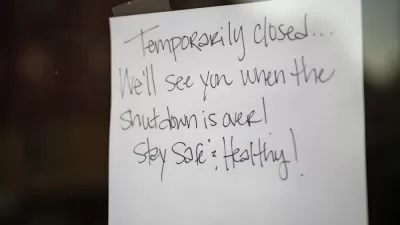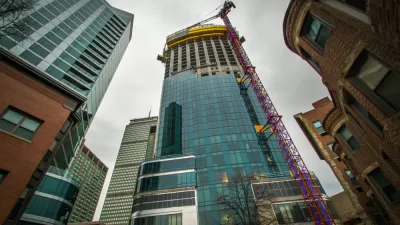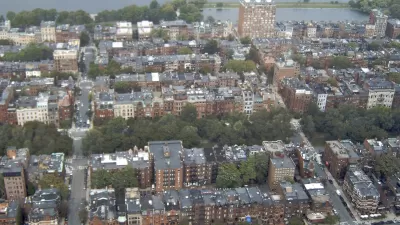Better architecture has been a consistent theme of the tenure of Boston Mayor Marty Walsh. The city's first comprehensive plan since 1965 could be the key tool in producing the desired results.
Dante Ramos writes an op-ed describing, and responding to, the emerging planning agenda for Boston Mayor Marty Walsh. Among the largest of those initiatives is the launch of Imagine Boston 2030, the city's first comprehensive planning process in 50 years.
In a separate Catherine Carlock reports the early details of Imagine Boston 2030, which so far has set the following timetable for planning and adoption:
"The Imagine Boston 2030 website outlines a six-phase timeline for the planning process: establishing baseline conditions this summer and fall; setting visions, principles and goals by this fall; drafting a formal blueprint by spring 2016; determining content development throughout the winter and spring of 2016; drafting recommendations to the mayor by late 2016 and into 2017 and a final plan adoption by summer 2017."
As noted by Ramos, Mayor Walsh announced the Imagine Boston 2030 process at the Innovative Design Alternatives Summit event earlier in May. The theme of the event follows earlier announcements by Mayor Walsh that called for better architecture in the city.
Ramos's article also includes commentary on the likelihood of Boston improving its planning process and its architectural outcomes—according to Ramos, the two go hand and hand. "Alas, architects can’t fix what ails Boston architecture. Only the mayor can," writes Ramos. "Walsh’s master plan could help. If it reduces risks by setting clear, reasonable parameters for what developers can do without seeking an indulgence from the city, they may take chances on new architects and new ideas."
FULL STORY: Mayor Walsh finds his urban-planning vision

Planetizen Federal Action Tracker
A weekly monitor of how Trump’s orders and actions are impacting planners and planning in America.

Congressman Proposes Bill to Rename DC Metro “Trump Train”
The Make Autorail Great Again Act would withhold federal funding to the system until the Washington Metropolitan Area Transit Authority (WMATA), rebrands as the Washington Metropolitan Authority for Greater Access (WMAGA).

DARTSpace Platform Streamlines Dallas TOD Application Process
The Dallas transit agency hopes a shorter permitting timeline will boost transit-oriented development around rail stations.

Car-Centric LA Suburb Looks to a Train-Oriented Future
City leaders in Rancho Cucamonga, the future western terminus of the Brightline West rail line to Las Vegas, want to reimagine the city as a transit-oriented, pedestrian-friendly community.

New Alaska Bitcoin Mine Would Burn as Much Energy as the State’s Largest Coal Plant
Fueled by “stranded” natural gas, the startup hopes to become the largest in the US, and to make Alaska an industry center.

New Jersey Duplexes Elicit Mixed Reactions
Modern, two-unit residences are proliferating in northern New Jersey communities, signaling for some a boon to the housing supply and to others a loss of historic architecture.
Urban Design for Planners 1: Software Tools
This six-course series explores essential urban design concepts using open source software and equips planners with the tools they need to participate fully in the urban design process.
Planning for Universal Design
Learn the tools for implementing Universal Design in planning regulations.
Municipality of Princeton
Roanoke Valley-Alleghany Regional Commission
City of Mt Shasta
City of Camden Redevelopment Agency
City of Astoria
Transportation Research & Education Center (TREC) at Portland State University
US High Speed Rail Association
City of Camden Redevelopment Agency
Municipality of Princeton (NJ)





























